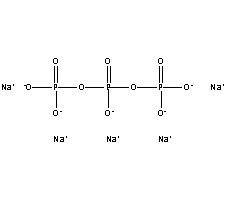STPP Turkey supplier
-
Post Date:
Mar 17,2025
-
Expiry Date:
Mar 24,2025
-
Detailed Description:
Cas No. :7758-29-4
Quantity: 500Metric Tons
Price:850 USD Metric Tons
Payment Method: L/C, TT
In detergents
The majority of STPP is consumed as a component of commercial detergents. It serves as a "builder," industrial jargon for a water softener. In hard water (water that contains high concentrations of Mg2+ and Ca2+), detergents are deactivated. Being a highly charged chelating agent, TPP5− binds to dications tightly and prevents them from interfering with the sulfonate detergent.
Food applications
STPP is a preservative for seafood, meats, poultry, and animal feeds.[5] It is common in food production as E number E451. In foods, STPP is used as an emulsifier and to retain moisture. Many governments regulate the quantities allowed in foods, as it can substantially increase the sale weight of seafood in particular. The United States Food and Drug Administration lists STPP as "generally recognized as safe.".
Other uses
Other uses (hundreds of thousands of tons/year) include ceramics (decrease the viscosity of glazes up to a certain limit), leather tanning (as masking agent and synthetic tanning agent - SYNTAN), anticaking, setting retarders, flame retardants, paper, anticorrosion pigments, textiles, rubber manufacture,fermentation, antifreeze."[5] TPP is used as a polyanion crosslinker in polysaccharide based drug delivery.
-
CAS Registry Number:
7758-29-4
-
Synonyms:
;pentasodium triphosphate;Pentasodium Tripolyphosphate;Sodium Phosphate Tripoly;STPP;Triphosphoric acid, pentasodium salt;Pent-sodium Phosphate;Sodium triphosphate;Sodium Tripolyphos;sodium phosphate (3:1);
-
Molecular Formula:
Na5P3O10
-
Molecular Weight:
367.86413
-
Molecular Structure:

-
Hazard Symbols:
 Xi:Irritant;
Xi:Irritant;
-
Risk Codes:
R36/37/38:;
-
Safety Description:
S24/25:;
Inquiry

Xi:Irritant;